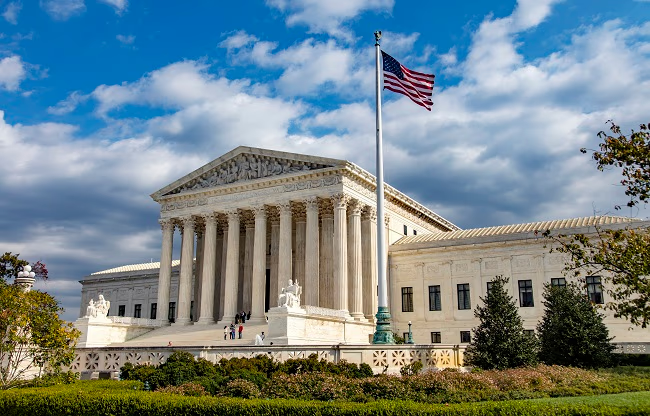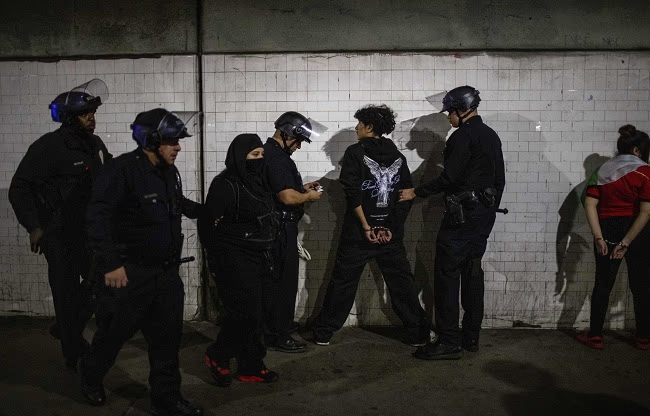The Alien Enemies Act, enacted over two centuries ago, is once again coming into play in the United States. President Donald Trump recently activated the act to deport hundreds of Venezuelans from the country. According to Trump, these individuals were involved in terrorist activities under the aegis of Venezuela's 'Tren de Aragua' gang and were seeking refuge within the borders of the United States.
The History of the Alien Enemies Act
Just before the dawn of the 18th century, the newly independent America was forging ties with countries like Britain, which did not sit well with France. Tensions escalated, and violence loomed. The US anticipated a large-scale conflict with France. The government feared that people within its borders, namely French nationals residing for trade, might side with France in the event of a conflict. This distrust gave birth to the Alien Enemies Act, endowing the President with extraordinary power during wartime to detain or deport any foreign nationals deemed threats. Essentially, if America was at war and citizens from that nation were living in the US, the government could detain them as potential threats.
Only Used Thrice in History
The Act is rarely invoked, utilized on just three occasions to date. The first was during the War of 1812 when British nationals were detained. The second, during World War I, saw Germans apprehended. Finally, in World War II, its most impactful use occurred following Japan's attack on Pearl Harbor, leading to the internment of over 100,000 Japanese-descended individuals under suspicion.

Source: aajtak
Why is Trump Using It Now?
Trump consistently addresses infiltration prevention, commencing actions to expel illegal immigrants early in his presidency. He alleges that many individuals from nations with tense US relations are unlawfully entering, engaging in illicit activities and subverting from within. In a recent speech, Trump emphasized the act's use to expel foreign criminal gangs. The administration views the act as a potent tool against gangs, with Venezuelan 'Tren de Aragua' frequently highlighted. On Sunday, nearly 250 individuals were deported as part of efforts to dismantle this network.
Last month, the Trump Administration branded this Venezuelan faction and seven other Latin American gangs as Foreign Terrorist Organizations. Officials state these gangs are entrenched in crime, violence, and drug smuggling within the US. Under the Alien Enemies Act, individuals linked to these groups can be expelled, a process that has begun in earnest.
Legal Challenge and Opposition
The Trump administration's decision faces legal challenges. Courts argue that the act traditionally applies against warring foreign enemies, not criminal gangs. They ordered the repatriation of deportees, although the Trump administration has yet to comply.

Source: aajtak
Activities of Foreign Criminal Gangs in America
Many suspected gang affiliates tied to 'Tren de Aragua' have been deported, with more potentially following. This notorious Venezuelan gang is infamous for human trafficking and homicides. Over the past decade and a half, widespread political and economic instability has driven millions to leave Venezuela. Amidst this upheaval, gang members have infiltrated US cities such as New York, Miami, Texas, and California, allegedly engaging in crimes. Trump and supporters view this as a significant factor in America's escalating crime rates, designating these groups as foreign terrorist organizations and deporting involved individuals as a countermeasure.
Venezuela's Resistance to Accept Nationals
Deportations proceed, but Venezuelan citizens are redirected to El Salvador instead of returning home. America pays El Salvador $6 million to house these illegal immigrants in their detention facilities temporarily. Often, Venezuela refuses to repatriate its citizens, especially those expelled from America. The nations' longstanding strained relations complicate such processes.
Venezuela perceives American intervention in its sovereign affairs, rebuffing White House requests. Moreover, if Venezuelans deported from the US are repatriated, it suggests a governance failure to manage its populace. Facing international critique, primarily from the US, Venezuela counters by denying affiliation with such individuals and projecting control. Additionally, the prospect of hosting expelled individuals burdens Venezuela's already stretched resources.




